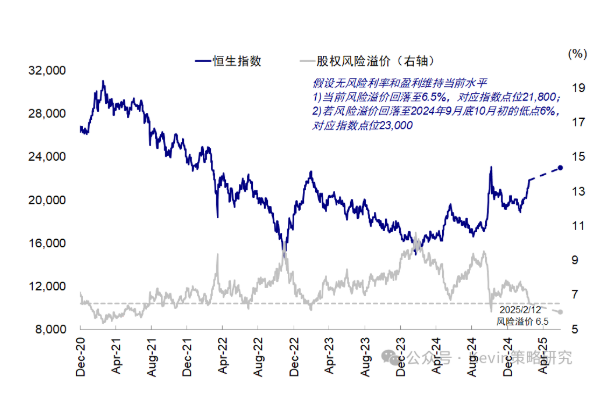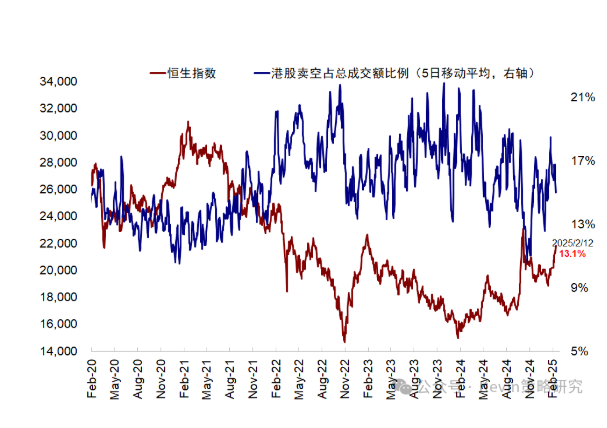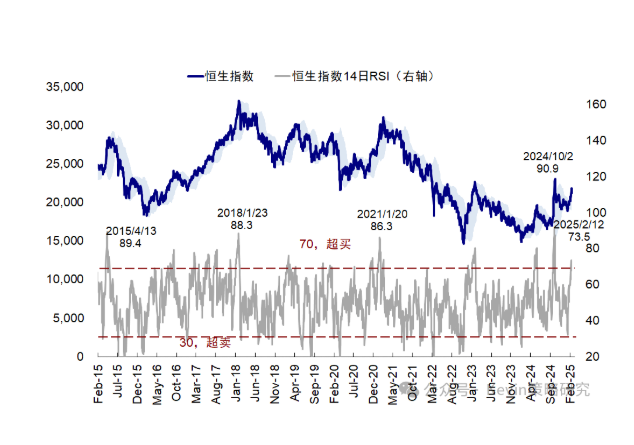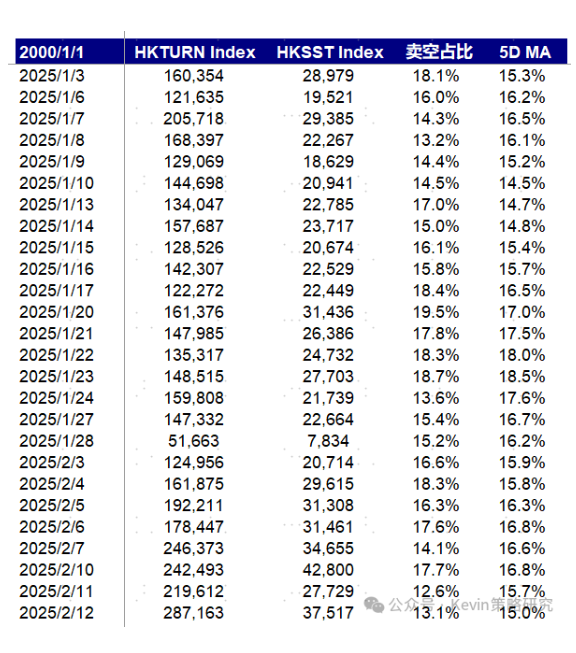① Hong Kong stocks closed technically overbought today, with an RSI of 74%. Short sales fell from previous days, and the equity risk premium fell to 6.5%.
② The market is concerned about the rising space of Hong Kong stocks. Combined with data analysis, the sentiment is overdrawn in the short term but not extreme. It is difficult for the Hang Seng Index to correspond to 23000 points.
After a brief adjustment yesterday, Hong Kong stocks surged again today. Real estate related news in the afternoon also boosted the performance of real estate stocks. The market is more concerned about the next space. We combine some of the latest data to update the following information for your reference.
As of today (close on February 12), Hong Kong stocks are generally technically overbought (RSI of 74%), but short sales have dropped from previous days, indicating that some differences are decreasing or are being forced to short positions due to gains. The equity risk premium fell to 6.5%(6.7% at its May 2024 peak and 6% at its October peak last year).
So on the whole, the conclusion that can be drawn is that emotions are overdrawn in the short term. But is it extreme? That’s definitely not the extreme. Where are the emotions in October? If we “move” the excitement from the high point in early October and convert it to 23000 points, it is not impossible but difficult.
So is there any foreign investment buying? The data currently available can only be seen as of last week (this week’s data is updated on Friday). The conclusion is that there is no long-term foreign investment (holding, the most important), but there should be short-term foreign investment (such as passive funds and trading funds), but the biggest problem with the latter is that it is not sustainable, which is exactly the same as the wave at the end of September.
There are a few interesting points about this wave of rise, which can also be regarded as misunderstandings. In fact, this time it is still a structured market in general, and it is a more extreme structured market. Only more than 20% of stocks outperform the index (more than 60% of stocks outperform the index in the 924 market). However, these small-scale stocks can be relied on to push the overall index up and outperform A-shares. The main reasons are: 1) the overall market of Hong Kong stocks is small;2) Hong Kong stocks have more software stocks and major manufacturers, but this A-share does not have;3) In terms of index construction, the Hang Seng Series Index artificially limits the upper limit of individual stocks to 8%, which will make small and medium-sized companies more effective in pulling the index.
The next two ways to go: First, we should continue to structure, and the industry narrative should not be falsified. At worst, we should create a structural bull market, similar to smartphones, consumer electronics in 2012-2014 and semiconductors, new energy, or U.S. stocks after 2019. The seven sisters, but this requires the continuous realization of the industry as the basis. If it cannot be cashed, it will either be speculation spreading around this main line, or it will be hugging big factories in the most likely directions to cashed out.
Second, it will further spread to the overall market, but it requires two conditions: 1) technology has changed and solved the overall macro deleveraging and contraction problems, resulting in a significant increase in total factor productivity and natural interest rates;2) macro aggregate policies are coordinated and increased, such as today’s real estate news, but now the popularity of AI and the relatively mild tariffs will lead to the aggregate policy being less urgent? Observation is needed.







